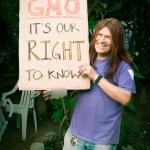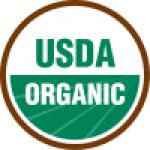Last week I highlighted four disturbing trends in science journalism that are destroying the public's trust in mainstream academic and publi
organic
Reporters like to lecture the public about the importance of science while promoting obviously unscientific ideas when it suits them.
Once a cultural and political force to be reckoned with, the anti-GMO movement has lost control of the crop biotechnology narrative.
When we argue over genetically engineered crops and pesticides in the developed world, the outcome of the debate doesn't determine whether or not we go hungry.
If you're worried about never-ending wars, crippling national debt, poverty, disease, social unrest, or even really bad stomach aches, the anti-GMO movement is here to tell you about another troubling threat: ice cream made in
If there's one thing everyone should know about science, it's this: what the evidence shows about a topic and what the public is told the evidence shows are often very different things.
“Are GMOs making you sick?” That's the question posed by the Institute for Responsible Technology (IRT) in an alarming April 2
The Environmental Working Group has once again released their Dirty Dozen list — the fruits and veggies they say are covered in pesticides. One minor detail: organic produce contains pesticides, too, but that doesn't quite fit their narrative.
NYT's Nicholas Kristof sure knows how to live harder, not smarter. He's been avoiding chemicals and living clean — as he puts it — for several years.
OK, EWG, I've perused your website and been warned about the produce with the most pesticide residues, as well as your list of the supposedly "cleanest" ones. And I know that you don't do the testing for pesticide residues yourselves, but re










